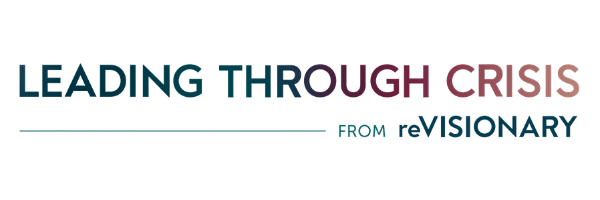Leadership Systems with Sarah Olivieri
Listen to this episode on Apple Podcasts or Spotify
One of the things I accepted about myself a long time ago, and that my ADHD diagnosis definitely helped explain, was that I am not a naturally organized person. I spent many years trying to figure out how to be more organized, and always managed to come up short.
I would make a list (standard advice for getting organized)... And, for most people, that looks like making a list, checking something off, feeling accomplished, and moving on to another item on the list. However, when I would make a list, I would quickly get distracted by something (whether on the list or not), move on to 100 other things, and forget about the list entirely – until I remembered that making lists is a great way to get organized! Then, I’d make a new list, add an item to the list, find the old list, and end up with 78 different lists in different places.
Maybe not the best approach to getting organized.
I’ve had similar challenges with doing certain things consistently. I really like the idea of journaling daily. Of sitting down with my notebook, writing out my thoughts and feelings in a structured way, of having my memories captured in a way that is more meaningful and easy to reflect upon. In fact, I have dozens (literally dozens) of notebooks and pens on hand for my daily journaling habit – you know, the one that has yet to happen with any consistency.
I’ve tried different ways of enticing myself to stick with this habit, and none of them have proven successful. Turns out, that’s simply not the most effective way for me to gather, review, and examine my thoughts or feelings.
But, if that ever changes, I have all the notebooks one could ever need in this lifetime to make it happen.
Because of my experiences and beliefs around things like those, I’ve always been very resistant to the idea of systems and processes as well. I recognize sometimes they are necessary and can be beneficial but, overall, I have a tendency to disregard or devalue them – even though I have and continue to benefit from them.
In my experience, many people (myself included) have very specific ideas of what does and does not constitute a system. And, because of this, we tend to overlook systems that are, for example, less technical in nature and more behavioural.
An example of a system that I use, all the time, myself is around the naming of emotions. I believe deeply that all of our emotions are good because they provide information that we need. As such, the first reaction or feeling we have about something is vital to our ability to understand what we need to know about whatever the situation at hand is. Because I believe this, I have a practice (or system, if you will) of:
Pausing
Naming the feeling, reaction, or thought I first had
Asking myself if that is “the truth,” if there’s information I need, or if that’s based on my stories, etc
Asking myself what would be the most constructive next step for me
Implementing that step
Revisiting the situation later to ensure that I have named and understood the feelings that were there, what they were indicating, and moving on from them
It wasn’t until my conversation with Sarah Olivieri, an expert in leadership systems, that I started to recognize just how often I use systems (without calling them systems) in my life and how beneficial they are.
In this episode, we talk about:
The importance of reading the room and checking in with emotions
How the brain works and what we need to understand to make good/effective decisions
The basic types of leadership systems (and what each is best used for)
How to look for (or create) and leverage change moments
The one thing that can bring so much peace and joy to your life as a leader/human
She shares some great practical examples, as well as some helpful resources and tools.
And, one of my new favourite scales…
“In leadership situations and, especially, in crisis, you can either be a Chicken Little or a MacGyver,” she says. You can run around yelling, “The sky is falling!” Or, you can stop and ask yourself, “What do we have around us that we can make work?”
—
Sarah Olivieri is a business leadership coach and strategist with a passion for helping organizations thrive, and a #1 international bestselling author.
Sarah has a fundamentally different way of looking at things; an ability to see a kernel of opportunity, to flip a problem on its head, to understand which levers to pull for success – and she’s poured her strategic brilliance into the heart of The Impact Method™️, a leadership and operating system, that helps businesses get out of the weeds, rapidly pivot away from the ineffective, and create a co-ordinated, systemized way to develop and execute strategy effectively.
To learn more about Sarah and her work, visit pivotground.com. You can also find her on all the socials (by searching Sarah Olivieri or PivotGround).
